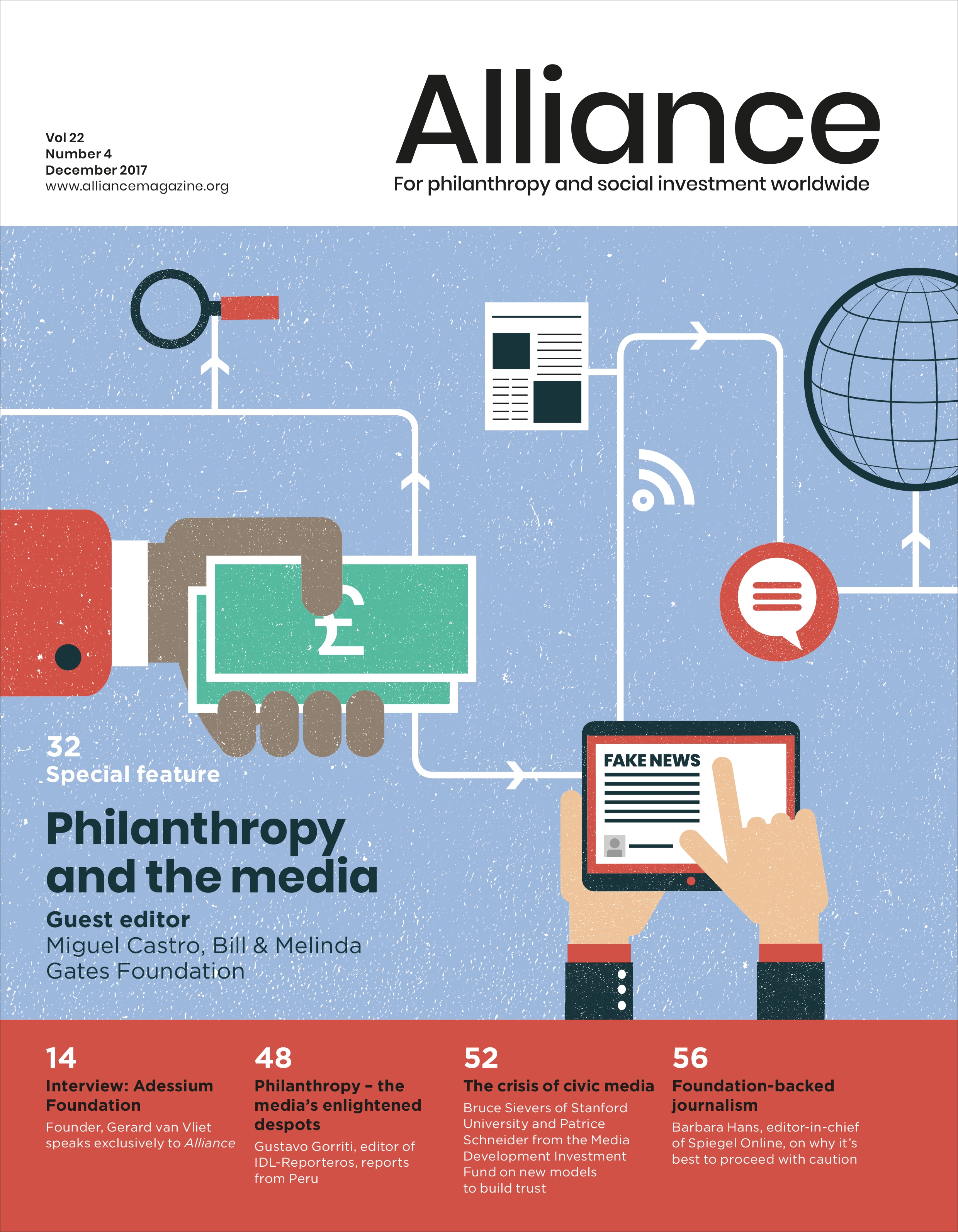As the traditional advertising model for media continues to shrink, the role of philanthropic funding in journalism has reached a new moment of importance.
It is merely the latest sign, that in September 2017, the New York Times announced that one of its newsroom leaders was moving into a new role, helping the paper ‘seek philanthropic funding for ambitious journalism’.
Yet unlike the advertising departments – which over a century developed clear lines of ethical practice to ensure separation from editorial or even public broadcasting, which is governed by strict guidelines and a long history, the rule of the road for the growing role of non-profit funding of new digital journalism, and even partnerships with traditional commercial outlets, is less certain.
In 2015, we at the American Press Institute were approached by the Knight Foundation and the Bill & Melinda and Gates Foundation, first, to conduct detailed research on what rules and mores funders of media and non-profit media outlets were operating by, and then to gather key stakeholders and, learning from what the research found, develop guiding principles to govern or at least inform the field.
Our research, which included surveys of 94 non-profit media outlets, 76 funders and 146 commercial outlets, identified a number of possible vulnerabilities at the time, vulnerabilities that seem even more salient a year and a half later given the concerns raised by the current political climate about trust in media.
Funders could be troublingly specific about what they wanted reported, going so far as to finance specific stories and exposés. In 2014, a major New York public TV station returned a $3.5 million grant from the Laura and John Arnold Foundation following criticism that a series on pension funds was too close to funders’ interests.
Media outlets in our sample – which had a higher representation of newer non-profit media, many of them digital natives – were often too willing to say yes because they needed the funding.
The key to avoiding problems is to think through what they might be ahead of time and then to be as transparent as possible with the public about how you operate. Moreover, far too few media outlets had written guidelines or ethics policies, which meant they were operating, and fundraising, ad hoc.
We then gathered 18 scholars, non-profit media executives and representatives from nine funding organizations to hammer out two sets of guidelines: a lodestar set of principles for funders and another for non-profit media. They separately drafted, then shared their ideas. We refined the language, returned the draft for review to everyone, and, after participants were satisfied, put them out for further comment.
Three key notions emerged. News organizations ‘should have written policies that establish… principles of editorial independence, transparency and communication, which will be the starting point of any interaction with funders’.
Funders ‘should be transparent [with the public] about the media they are funding, and they should expect media partners to report their sources of funding’. They should likewise ‘articulate their motivations for funding journalism and explain what would constitute success in meeting their purposes’.
These principles should be a starting point for those in the field. Honolulu Civil Beat, a non-profit local news outlet launched in 2010 backed by eBay founder and philanthropist Pierre Omidyar, is one organization that has announced publicly it is adopting the guiding principles in full, linking to them on its website.
We encourage everyone to take them even further, specifying their own rules. If we have learned two things in this research, it is these. The key to avoiding problems is to think through what they might be ahead of time and then to be as transparent as possible with the public about how you operate.
Tom Rosenstiel is executive director, American Press Institute. Email tom.rosenstiel@pressinstitute.org
Kevin Loker is programme manager, American Press Institute, and directed the work on non-profit funding in media. Email kevin.loker@pressinstitute.org




Comments (0)